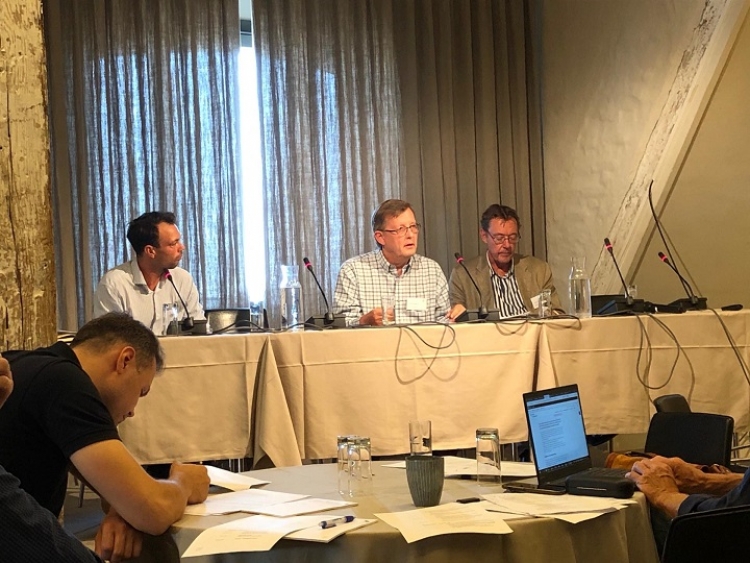The meeting was opened by Paula Lehtomäki, the Secretary General of the Nordic Council of Ministers. On 20 August Nordic prime ministers approved the new vision of the Nordic Council of Ministers for 2030 and the main task of our organisation is to implement this vision. She emphasised that the Baltic offices should also focus on three main aspects in their work: priority topics, placement of the focus and financial capacity. “The implementation of the vision requires specific activities and everyone’s contribution. We must think how we can achieve sustainability and social equality, and learn from each other to achieve the best result, and we must start doing it today! Let’s not forget that we have good partners and colleagues who can help us move forward.”
Each Baltic State had prepared a discussion on one of three topics: competitive Nordic-Baltic region (Estonia), green Nordic-Baltic region (Lithuania) and socially sustainable Nordic-Baltic region (Latvia).
The important keywords of improving competitiveness covered raising awareness of the climate, development of knowledge and innovation, dynamics and digital development. The attendees came to the conclusion that development work helps reach the development of technical solutions that promote green economy and innovative software solutions in various areas of life. Speaking specifically of Nordic-Baltic cooperation, it would benefit from agreements between the states as well as from similar understandings and legislation, e.g. in respect of climate challenges. The issues of artificial intelligence, which are becoming increasingly more important, call for common access to data, which in its turn calls for extremely high security measures.
Cooperation and shared views are also important for the achievement of a green Nordic-Baltic region – reducing carbon in the air is a good example in this area. Smart and environmentally sustainable transport by load, sea and air is something we should strive for together, as are the skilled handling of biomass and developing different ways of energy generation. The different attitudes of states towards the climate challenges a currently a problem – not all state governments see climate challenges as priorities. However, we can start creating added value by learning from each other and correcting the mistakes made by others. Each office of the NCM can also think of the channels and messages we could use to reach the decision-makers and create a uniform field of information to create shared views.
The goal of the socially sustainable Nordic-Baltic region is to promote an inclusive and equal region with strong mutual connections, where we introduce our culture to each other and where the residents share the same values and their wellbeing is guaranteed. The focus is primarily on children, the elderly and disabled people. The focus is also on gender equality. Although meetings of the Nordic and Baltic countries are held rather frequently, there is still plenty of room for joint activities. Every country can think about this and make proposals.
The roles and opportunities of the NCM offices of Estonia, Latvia and Lithuania were also discussed and the attendees listened to the presentations of the representatives of the NCM’s institutions (Nordforsk, Nordic Innovation) on cooperation opportunities in light of the vision of the Nordic Council of Ministers for 2030.

